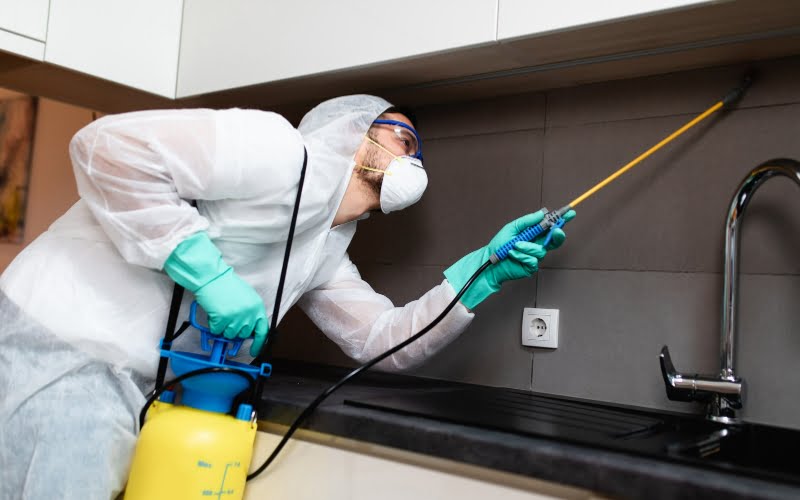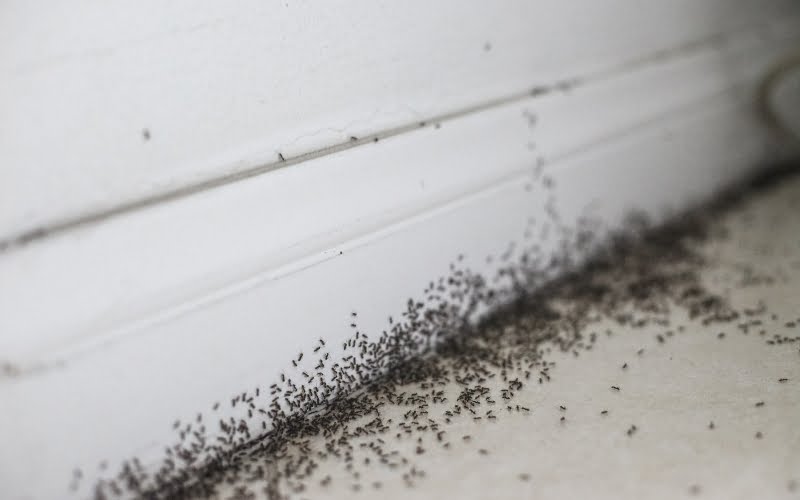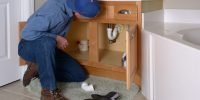Last Updated on March 18, 2024 by Kelvin Nielsen
Landlords are almost always responsible for pest control in their rental property. This is especially true if the pest problem isn’t a result of the tenant’s negligence or carelessness.
As a renter in Connecticut, the state’s warranty of habitability (Conn. Gen. Stat. §47) guarantees you the right to live in a habitable home. Among other things, it outlines the rights you have, the timeline with which the landlord must make repairs, and the legal remedies you have if repairs aren’t done.
The following are answers to commonly asked questions regarding landlord responsibility for pest control in Connecticut.
What are Common Bugs In Connecticut?
The state of Connecticut is home to a number of bugs. They include the following.
- Ants: Common ants include pavement ants, odorous house ants, and carpenter ants.
- Bed bugs: These are typically found in bed frames, mattresses, and box springs.
- Carpenter bees: These create nests by boring holes in wood.
- Cockroaches: You will find these in dark, moist areas, such as kitchens and bathrooms.
- Mosquitoes: These commonly live around ponds and swamps, and can transmit dangerous diseases.
- Termites: Similar to carpenter bees, these bore holes inside of wood, which can lead to significant property damage.
Other common bugs in Connecticut include ticks, spiders, moths, and fleas.
When are Landlords Responsible for Pest Control in Connecticut?
Generally speaking, the responsibility for pest control in Connecticut lies squarely with landlords. They must provide a pest-free home before a tenant moves in, take reasonable steps to prevent a pest infestation, and treat infestations when notified.
That said, as a tenant, you can only hold your landlord responsible if the pest infestation results from the following situations.
- If the infestation was there even before you moved in.
- If the infestation is caused by the condition of the property, such as cracks on walls or floors, or holes in the screens.
- If the infestation is widespread throughout the area. For instance, if other tenants in other units also complain of a similar infestation.
- If you have notified the landlord of an infestation in a timely manner. The landlord is obligated under CT laws to make the repairs within a reasonable time.
When is a Tenant Responsible for Pest Control in Connecticut?
As a tenant, you may also be liable for pest control in certain situations. Generally speaking, that usually occurs in the following situations.
- The pest infestation is caused by your negligence. For example, a pest infestation can occur if you improperly store food or fail to take out trash.
- If you fail to notify your landlord as soon as you notice the infestation. The moment you notice a pest infestation, you should immediately contact your landlord for action. Some telltale signs of a pest infestation include droppings, nesting materials, gnaw marks, and unusual noises, such as scratches and squeaks.
- If you refuse to allow the landlord to enter the premises.
How Long Do Landlords Have to Repair a Pest Infestation in CT?
Whether a pest infestation or any other repair you have requested the landlord to make, they must do so within 15 days. This is especially true if the issue bears an impact on your habitability.
The following are the steps you should follow when notifying the landlord of a pest infestation in your rented premises.
- Notify the landlord of the problem. Put this in writing.
- Take steps to prevent the spread of the pests. You can, for instance, seal up any cracks and holes in walls or floors, or clean up food or trash.
- Allow the landlord permission to enter the premises to inspect the extent of infestation and to take any preventative measures to prevent pests from returning.
What Legal Remedies Does a Tenant Have if The Landlord Refuses to Fix a Pest Infestation?
If you provide the landlord with proper notice and they fail to address the pest infestation, you can do the following.
- Withhold rent
- Repair the issue yourself and then make appropriate deductions on future rent payments
- Break the lease without penalty
Conclusion
So, are landlords responsible for pest control in Connecticut? It depends on the cause of the infestation. If is it due to a tenant’s negligence or carelessness, then the tenant is responsible. However, for all other scenarios, the landlord would be liable.
Disclosure: The content herein isn’t a substitute for advice from a professional attorney. It’s only meant to serve educational purposes. If you have a specific question, kindly seek expert attorney services.
Sources: Connecticut Implied Warranty of Habitability, Connecticut Landlord Tenant Law, Tenants’ Rights in CT, Landlord Responsibilities in Connecticut,

Hi, I’m Kelvin Nielsen, an experienced landlord and accomplished real estate lawyer. My focus is on answering your questions about renting in the hopes of making your life as a renter or a landlord a bit easier.







